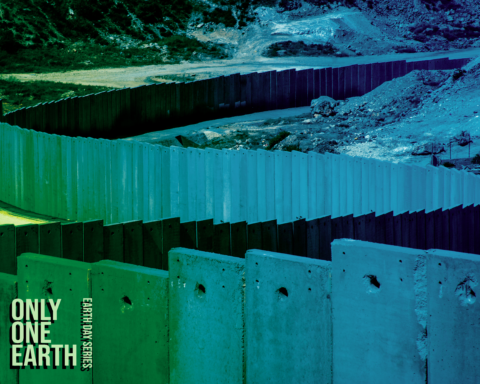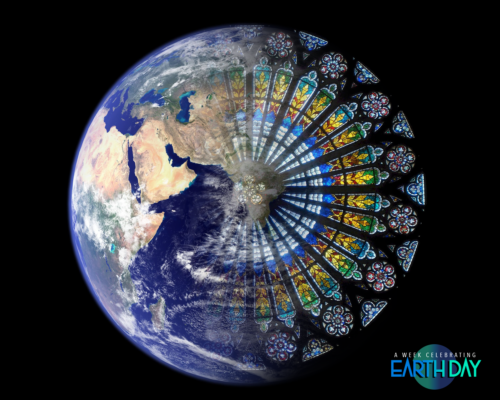INTRODUCTION: Earth Day 2016 was chosen for many nations, including the United States, to sign the historic Paris Agreement, negotiated at the end of 2015, to address global climate change. This was the most comprehensive agreement since the Convention on Climate Change was signed at the 1992 Rio Earth Summit. It was a milestone in the annual United Nations negotiations on climate change called a Conference of the Parties or COP for short.
However, significant aspects of the Paris Agreement needed more precision, and were docketed for future COP’s to work out. As this was the 25th meeting, the event is commonly known as COP25. Originally COP25 was slated to meet in Santiago, Chile. However, the social protest underway in Chile prompted a change of venue to Madrid.
From the Rio Earth Summit through COP25, faith-based organizations have been active participants as observers in the UN process. Madrid was no different. Faith-based organizations sponsored Side Events (panel presentations) on key subjects, met with diplomats, used social media to keep their members informed, held religious events, participated in public witness events, and delivered a message to the plenary on the moral and ethical imperative to address climate change.
PURPOSE OF COP25: The main tasks for COP25 were to iron out the incomplete details on a variety of issues in preparation for the first “stock take” in 2021 on the adequacy of national commitments toward mitigation to keep global warming to well below 2 degrees Celsius, and strive for 1.5 degrees, and adaptation measures to respond to the changing climate, particularly assisting the poor and vulnerable.
The reality check for COP25 involved recent scientific studies indicating that current commitments fall far short of what is needed to meet the Paris goal, and that time is running out to reduce greenhouse gas emissions sufficiently. Thus 2021 must see significantly “enhanced ambition” rather than mere tinkering with commitments.
POSITIVE RESULTS: Some positive results included adopting a major implementation plan for gender issues. The UN process was committed advancing “women’s full, equal and meaningful participation” and promotion of “gender-responsive climate policy and the mainstreaming of a gender perspective.” Negotiators struggled with proposals to include human rights, just transition and indigenous issues in the plan, the resulting text included sufficient language for a number of NGO’s to hail the plan.
The European Union stepped forward to announce that prior to COP26, now scheduled for 2021, it would declare net zero greenhouse gas emissions by 2050 as its ambition commitment. The EU is also considering an enhanced commitment for 2030 to reduce emissions from the current goal of 40% below 1990 levels to “at least 50% and towards 55%.”
The United Nations Environment Program (UNEP) noted reasons for optimism: public support for strong climate policies globally, clear scientific analysis supported by more people, and industry (I would add sub-national governments mobilizing to address the climate crisis.
KPMG, an advisory service for the corporate and financial sectors, summarized key outcomes of COP25 this way:
- Recognition of climate impacts is growing as the science solidifies and the climate impacts become more evident.
- Avoiding catastrophic climate impacts requires deep and rapid decarbonization.
- Investors are beginning to act more strongly (citing for example the Climate Action 100+ where the PCUSA is among the 370 investors involved).
As a result, KPMG urged the business sector to recognize:
- The need to begin and expand efforts to decarbonize their operations.
- The science is settled, and increasingly accepted (The Science Based Targets initiative disclosed that 686 of the world’s largest corporations are committed to using science when setting emissions reduction targets, and that 285 already have targets consistent with the Paris Agreement).
- There will be more targeted pressure on corporations from investors and civil society as the research data on climate impacts and corporate performance increases.
- Public expectations of businesses and governments are growing.
FAITH-BASED PARTICIPATION:
PCUSA: The PCUSA was represented by Rev. William Somplatsky-Jarman, retired national staff and member of the World Council of Churches (WCC) Climate Change Steering Committee; Mr. Rob Fohr, PCUSA Director of Faith-Based Investing; Ms. Sue Rheem, Ministry to the United Nations; and Ms. Christian Brooks, Office of Public Witness in Washington, DC. In addition, Ms. Bee Morehead, Executive Director of Texas Impact, Ms. Erica Nelson, Staff of Texas Impact and member of the Advisory Committee on Social Witness Policy. Rev. Neddy Astudillo, a Presbyterian working with Green Faith, and Dr. Grace Kim, a professor at Earlham, also attended.
Mr. Fohr was a presenter on the opening panel of the We Are Still In coalition, a civil society organization supporting the Paris Accord. He outlined the PCUSA’s work on faith-based investing and climate change. Rev. Somplatsky-Jarman participated on a second panel of investors on the theme was how major pension funds are conforming their investments to achieve the goals of the Paris Agreement.
ECUMENICAL PARTICIPATION:
Faith-based representatives from Christian churches and organizations held several events and meetings during COP25 including weekly and daily coordination meetings facilitated by the ACTAliiance reference group on climate justice.
On Sunday, December 8, 2019, a Ecumenical Service and Dialogue on Climate Justice was held at the Evangelical Church of Spain in Madrid, a Reformed congregation. Afterwards, ecumenical representatives reviewed the first week, and strategized for the second.
The US church presence included representatives from the Episcopal Church, the Evangelical Lutheran Church in America, the United Methodist Church, the Christian Reformed Church, the Presbyterian Church (U.S.A.), the Quakers, Maryknoll Fathers and Brothers, and the Maryknoll Office for Global Concerns. Ecumenical and interfaith groups included Texas Impact, Interfaith Power and Light and Green Faith.
The ACTAliance coordinated public witness events highlighting support for greater ambition, funding for loss and damage, and support for inclusion of human rights, women’s issues and indigenous peoples’ concerns.
INTERFAITH PARTICIPATION
On December 1, 2019, there was a COP25 Interfaith Dialogue on Hope, Action and Prayer. Again hosted by a congregation of the Evangelical Church of Spain, the event helped set the tone of interfaith cooperation at the COP.
There were several Side Events which involved faith-based groups collaborating with each other and with secular organizations.
The WCC partnered with the Friends World Committee for Consultation, the Brahma Kumaris World Spiritual University, Franciscans International, and Quaker Earthcare Witness on the topic of Inspiring Courage to Act and Adapt in a Climate Emergency.
Christian Aid joined with Oil Change International and Earthworks to discuss “charting a path away from oil and gas and towards a more sustainable 1.5C future.
World Vision International, Plan International and Save the Children International focused on “A climate just future for all children.” The discussion advocated for placing the rights of children at the center of action on climate change.
ACT Alliance, Bread for the World, and the German Development Institute came to discuss “Breaking New Ground: Advancing Loss and Damage Governance and Finance Mechanisms.” They explored pathways to link Loss and Damage policy choices and the long-term goals of the Paris Agreement and the 2030 Agenda.
INTERACTION WITH THE U.S. GOVERNMENT
Unlike previous COP’s, the U.S. did not sponsor any Side Events, or have a pavilion for other programming and briefings. There was no literature for distribution. There was no concrete evidence of behind the scenes positive contributions either. In fact, unlike the previous years with the current administration, the U.S. government sought to separate itself from any obligations including under the original Framework Convention on Climate Change as well as from the Paris Agreement.
The U.S. was not alone in obstructing progress. While fires consumed Australia, its government doubled down on fossil fuels. Saudi Arabia and other nations sought special consideration. Even Brazil, Uruguay and Argentina sought to alter formulas to determine carbon dioxide equivalents for methane in order to protect their cattle raising sectors. Brazil, India and China were chastised by the Alliance of Small Island States for their role in blocking progress on market mechanisms to reduce emissions.
However, during the first week several Congressional Representatives and one Senator came for a couple of days. Speaker of the House Nancy Pelosi headed up the delegation. The delegation held a press conference attended by some members of faith-based organizations. The delegation met with some faith-based observers, primarily from D.C. offices. Included in the delegation was Representative Kathy Castor, a Presbyterian from Tampa, Florida. All members of the delegation said they would like to hear more from their faith-based constituents.
OTHER INTERACTIONS
Several very informative Side Events focused on gender and indigenous issues and on the Amazon rainforest. They indicated the amount of progress that has been made in incorporating such concerns into the COP process. The Pacific Island nations again had a pavilion with numerous presentations and cultural events. A special focus on the Pacific is underway in the WCC. As a result, the next meeting of the WCC Climate Change Steering Committee will be held in Fiji in late October 2020.






Unbound Social